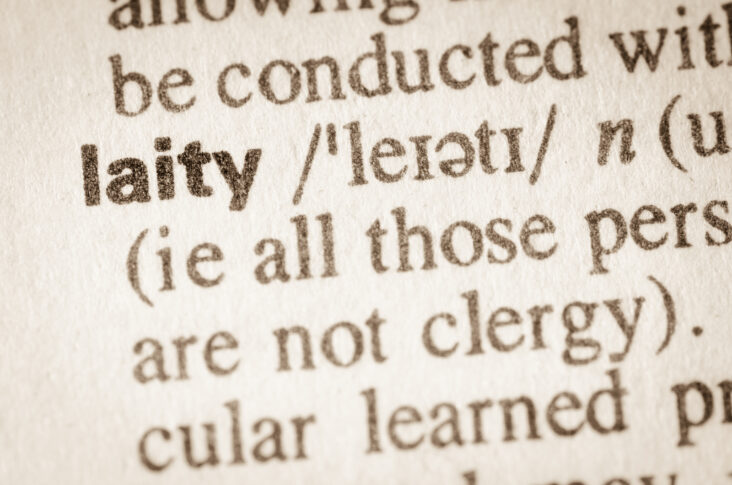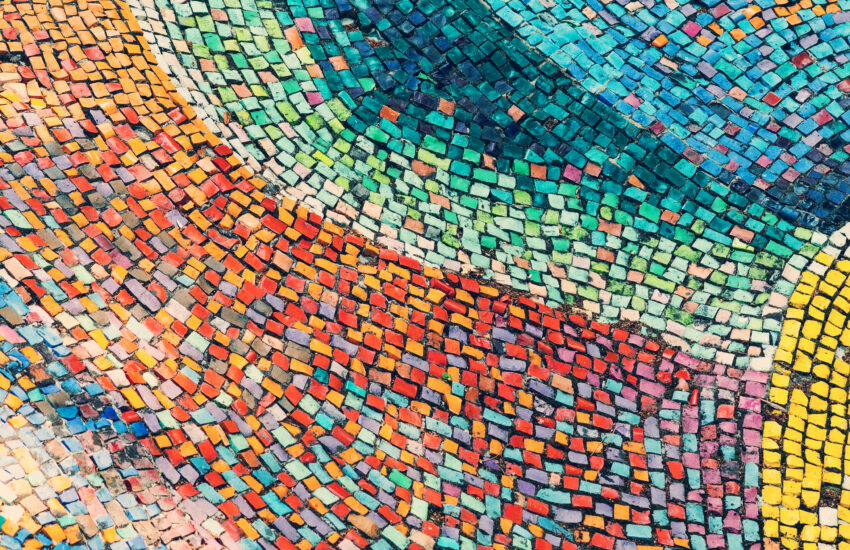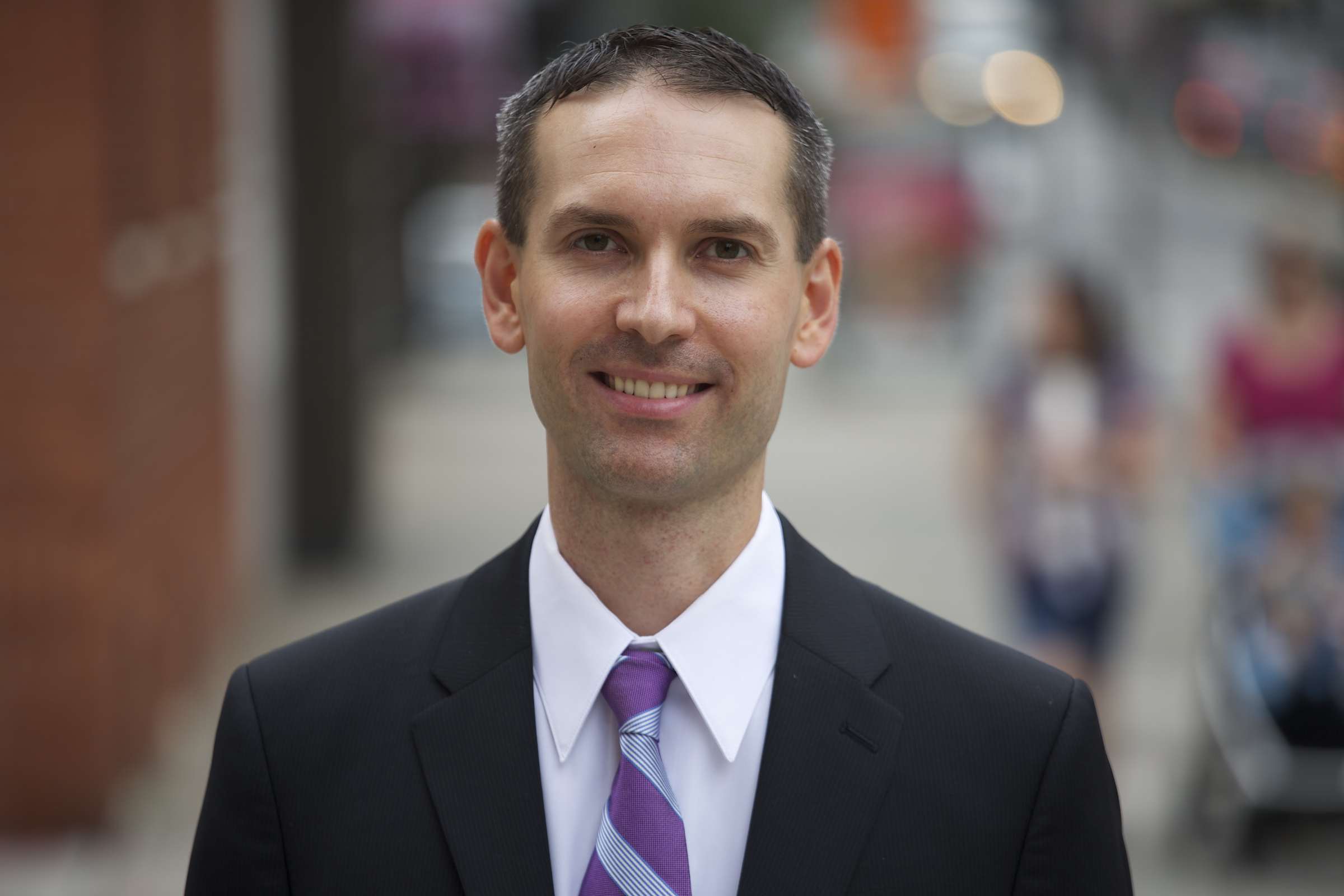This year the Lycée Français de New York invited French sociologist Patrick Simon of the Institut National d’Études Démographiques (INED) and a former visiting professor at the CUNY Graduate Center, to address the topics of diversity and laïcité during presentations for our faculty, staff, students and families. By inviting a French scholar, the Lycée provided its non-French staff and students an introduction to the crucial concept of laïcité, a focus of our work in developing intercultural competence and understanding.
Prof. Simon spoke to faculty and staff in August during pre-Rentrée week about ethnic and religious diversity in French society (“La France multiculturelle : Diversité et Discriminations“). He returned to the Lycée in January and February to give conferences with faculty, staff and families on approaches to laïcité in France (“La laïcité en question“). In his presentations, Prof. Simon defined the legal basis for laïcité in France, based on the Law of 1905, the Constitution of 1958, and the Law of 2004.
During a conference with eleventh and twelfth graders, he answered their questions about laïcité, a topic covered in history, as well as in Enseignement Moral et Civique (EMC).
 Students were interested in knowing more about how laïcité creates the space for individual liberty. (En quoi la laïcité crée un espace de liberté ?) They also sought to make comparisons between the United States and France. (Y a t-il une différence entre la séparation de l’Église et de l’État aux États-Unis et la laïcité en France ?) A third theme that emerged from their questions concerned social cohesion. (Comment la laïcité peut-elle résoudre les problèmes de communautarisme et de polarisation ?)
Students were interested in knowing more about how laïcité creates the space for individual liberty. (En quoi la laïcité crée un espace de liberté ?) They also sought to make comparisons between the United States and France. (Y a t-il une différence entre la séparation de l’Église et de l’État aux États-Unis et la laïcité en France ?) A third theme that emerged from their questions concerned social cohesion. (Comment la laïcité peut-elle résoudre les problèmes de communautarisme et de polarisation ?)
Students summarized what they learned from the conference in a follow-up assignment. Here are reflections from a few of our students.
Q: Why consider a topic such as laïcité and its effects in relation to the theme of Enseignement Moral et Civique?
Inès C. La laïcité est un concept simple qui est difficile à expliquer. D’après Patrick Simon, la laïcité n’est pas une opinion parmi d’autres mais bien la liberté d’en avoir une. Celle-ci garantit la liberté de conscience. Elle prend ainsi forme comme une liberté de manifester ses croyances ou convictions dans les limites du respect de l’ordre public. La République laïque impose ainsi l’égalité des citoyens face à l’administration et au service public, quelles que soient leurs convictions ou croyances.
Timothy O. The notions that are meant to be studied and nuanced are primarily related to democracy, from its foundations, evolution and practical integration into civil society. La laïcité has immense implications and consequences in the integration of democratic principles into government and social policy. More specifically the notion of laïcité evokes especially the fundamental rights of religious and expressive freedom by the citizens in a nation. Furthermore, considering the biculturality of the Lycée Français de NY, and the vitality of a freedom of expression that is total in the United States, the French modality of an enforced, public, religious neutrality…or even indifference, raises controversy and discussion on the implementation of democracy. However in contemplating the effects of la laïcité, one must not only study the actual effects of it, but its true intentions.
After the exchange with Prof. Simon, students shared their individual perspective on laïcité. Here are excerpts from a few Terminale students.
Théa J. Par rapport à tout principe lié à la démocratie, je suis du point de vue qu’il faut trouver un juste milieu, qui je pense est absent en ce moment. Dans le débat de si la laïcité induit une cohésion ou une exclusion, qu’a soulevé Prof. Simon, je pense qu’en ce moment, elle suscite une plus grande exclusion, notamment des personnes de foi musulmane.
…. Alors que ce principe en est de qualité pour moi, qui permet idéalement l’égalité des citoyens, je pense qu’il faut que la communauté française comprenne mieux les nuances de celles-ci, pour comprendre qu’il ne s’agit pas d’un effacement de la religion, mais une liberté fondamentale qui peut être étudiée et ainsi mieux adoptée.
Lina C. Following the conference and learning more about secularism in French society, I discovered that France adheres to all sides of the secularism debate (a coercive side and a more open side). Although France is a society that values freedom of speech, I believe that the prohibition on the hijab prevents people from expressing their true selves and religion.
Paloma F.… sous prétexte de désacraliser la religion et la réduire à un élément identitaire privé, la laïcité doit-elle restreindre le droit de chacun à pratiquer sa religion ? Ce serait aller à l’encontre de la loi fondatrice de 1905 reconnaissant la liberté religieuse, sans compter l’atteinte à la démocratie et à la liberté de chacun que cela représente.
Timothy O. I believe in religious freedom, and I find that la laïcité is certainly a more effective way of guaranteeing religious freedom than when a state identifies officially with one religion. It remains fragile, [however, by] encouraging religious neutrality through [the] restriction of public display[s] of devotion.
—
The research presented by Patrick Simon to our faculty, staff, families, and students invoked the definition of laïcité and the importance of understanding its history, particularly to how it relates to our multicultural context at the Lycée. The written reactions by our students to the presentation provide impactful insights into the development of intercultural competencies. The diversity of perspectives will help to guide and inform our ongoing work.
by Arthur Plaza, Terminale History-Geography Teacher
Clarissa Sylvestre and Rachel Stepanek, DEI Coordinators and
About the Author :
Arthur Plaza holds a Ph.D in History and French Studies from New York University. He also studied at Sciences-Po and was awarded a Fulbright Fellowship to conduct research in France in 2004-2005. Part of his research was published in the collective volume entitled “Politiques de la laïcité au XXe siècle” (PUF, 2007). In addition, he has been an editorial assistant at the scholarly journal, French Politics, Culture & Society.


